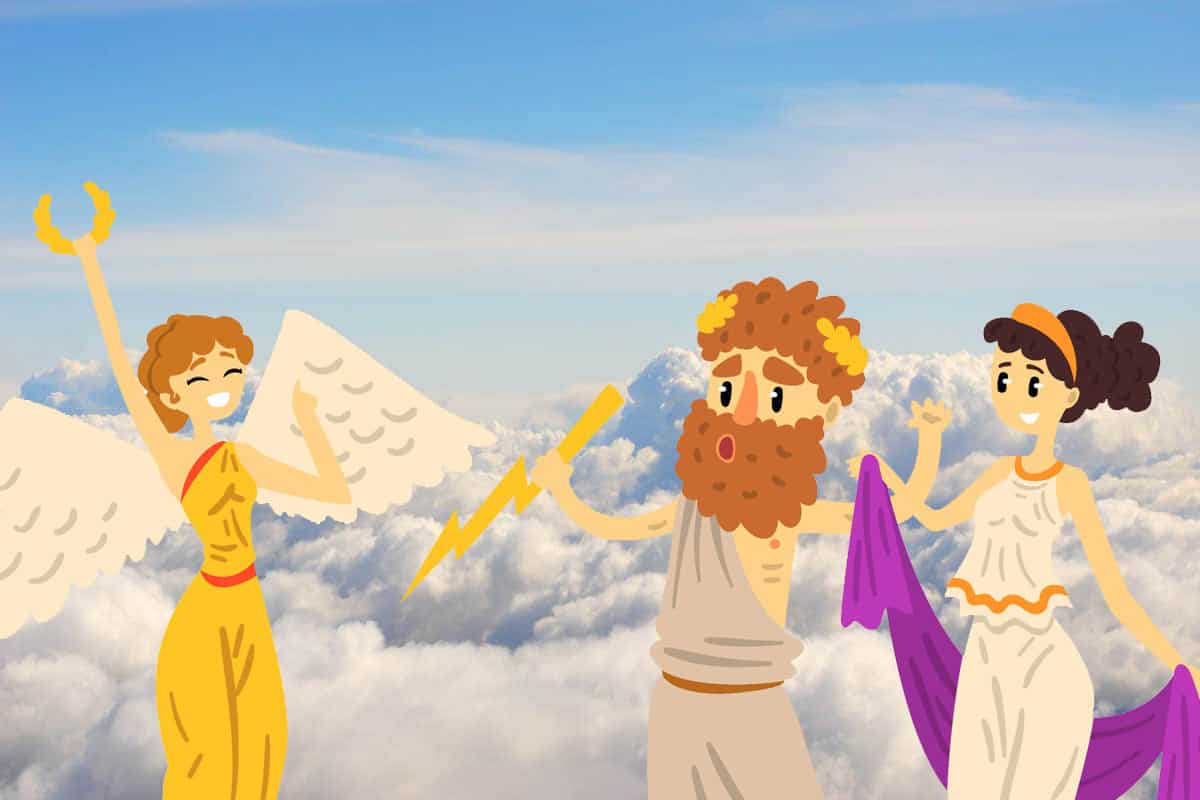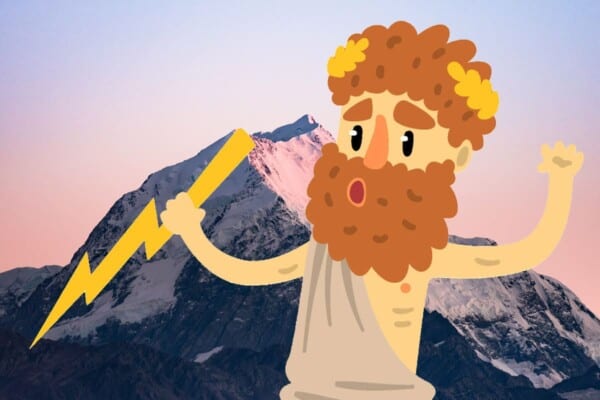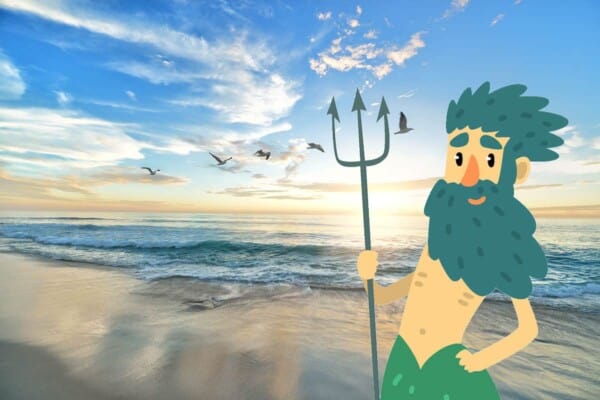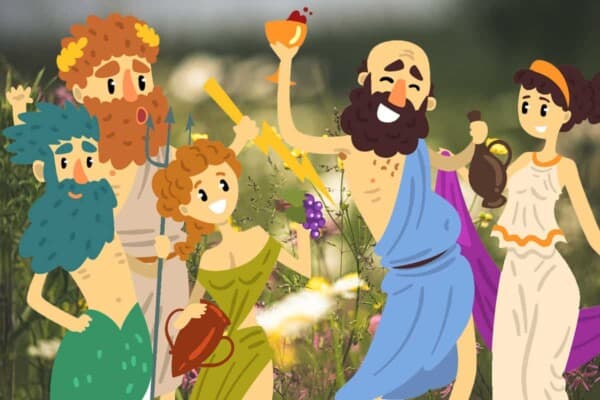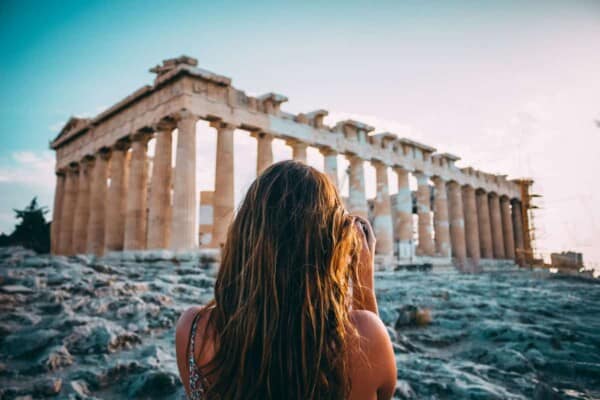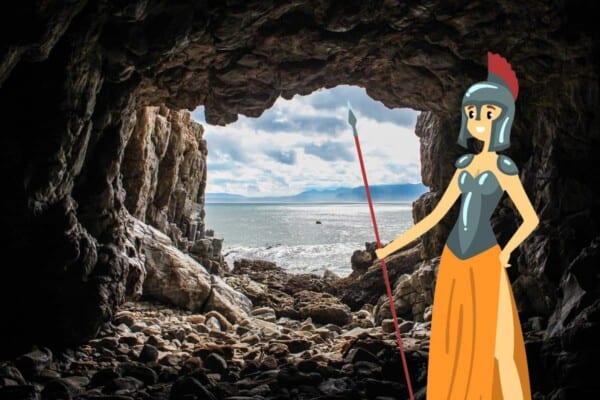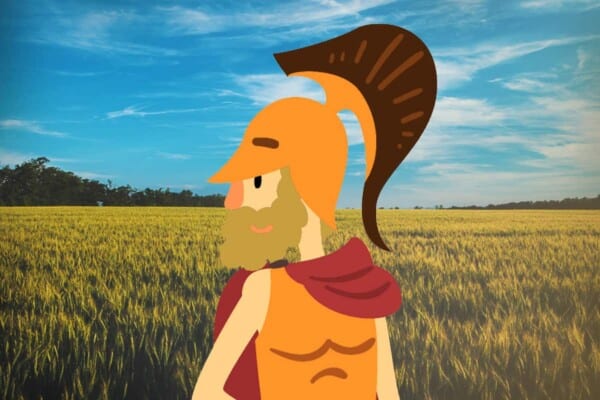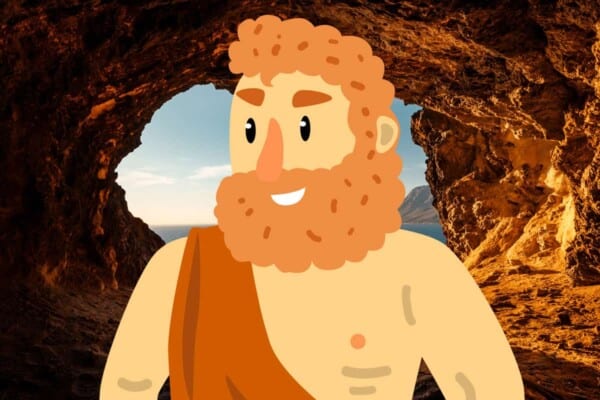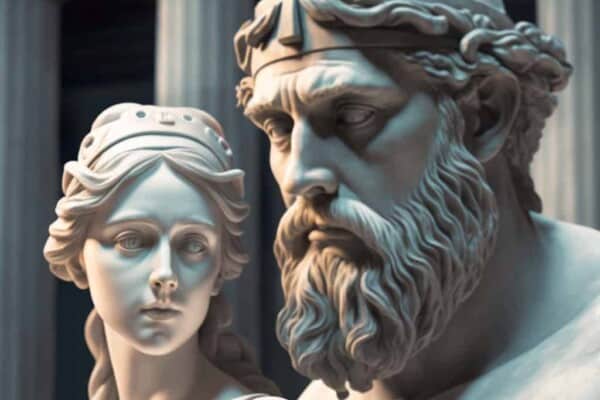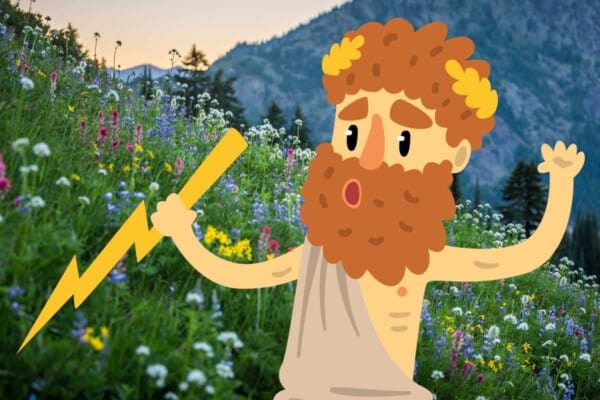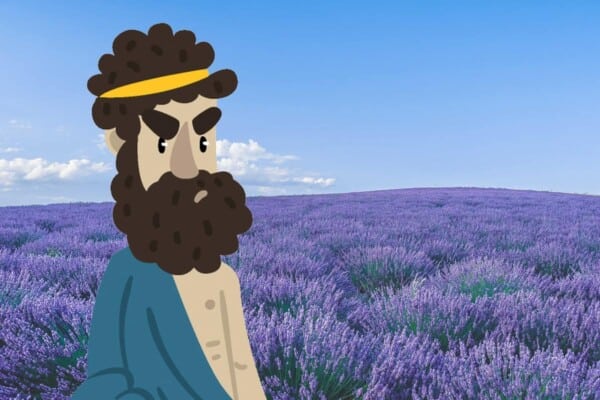Everyone knows Zeus is the god of the sky and the heavens but how many other sky gods and goddesses can you truly name?
In the article we are going to bring together some of the more important sky gods and goddesses from Greek mythology. So, without futher ado, lets dive in!
Sky Gods and Goddesses in Greek Mythology
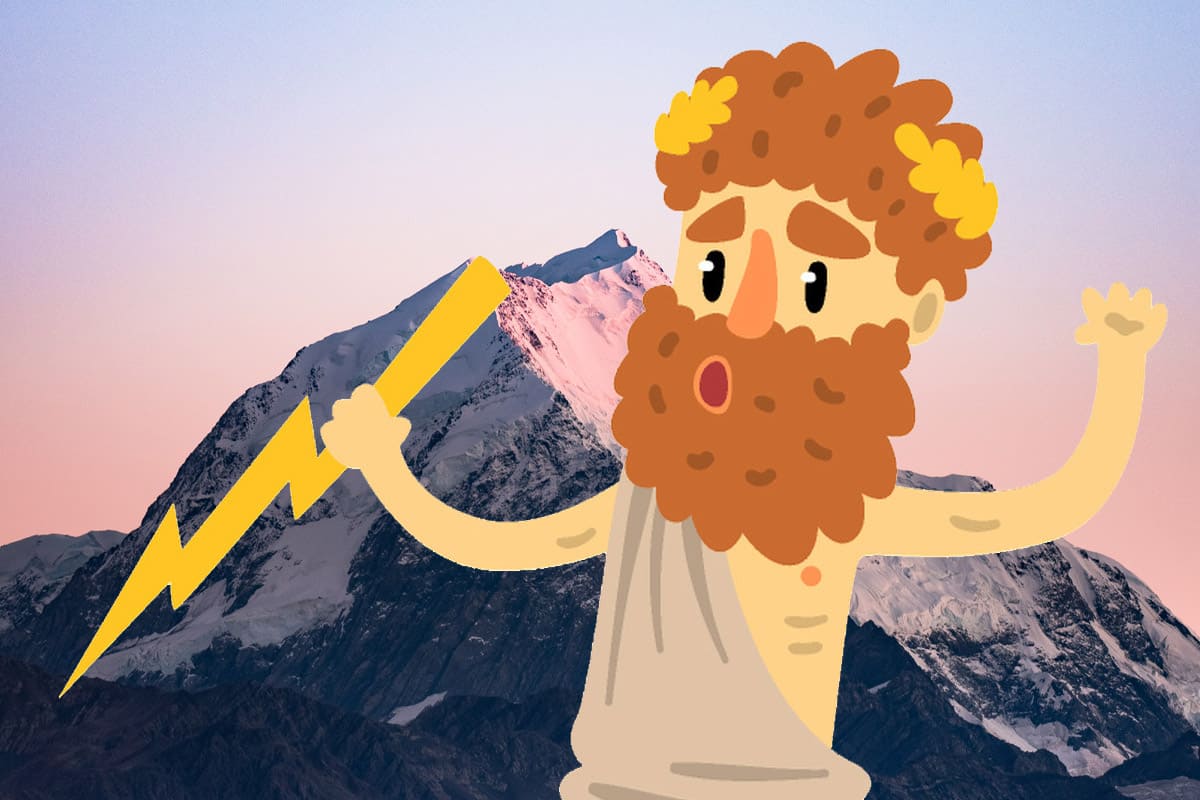
1. Zeus – God of the Sky
Zeus was known to be the son of Cronus and Rhea. He was King of the gods and was considered to be all powerful. He dominated over both the sky and mountains. He ended up marrying his sister, Hera, whom he did love but despite this had many affairs . Zeus was also known for maintaining law, justice, and morality.
Zeus was known to play roles in a lot of different myths. He was known to either help or punish different gods, goddesses, and mortals as he saw fit. The biggest myth in which Zeus was known for was his attack on his father Cronus. Cronus had been afraid of his children, thinking they would one day overthrow him. He ended up swallowing every one of them except for Zeus.
Rhea had managed to hide Zeus until he was old enough to come back and save his brothers and sisters. When Zeus did return, he got Cronus to throw up his siblings. Zeus then went on to lead a rebellion against his father. The Titans and the Olympians fought a battle that lasted 10 years. Zeus and his Olympians ended up winning. He then decided to imprison all of his enemies in the Underworld.
2. Aeolus – God of the Winds
Aeolus was known to be the son of Hippotes. Some accounts claim he may have been the son of Poseidon. He was known to be the god and king of the winds and ruled over a floating island called Aiolia.
As god and king of the winds, Aeolus was known to keep violent-storm winds locked up in a cave, sending them out when he or the other gods needed them to cause trouble.
Some of the winds would create light breezes, others, strong winds, and even more so, hurricanes or typhoons. How the winds were dispatched was dependent on Aeolus’ mood and the requests of the other gods. Sometimes Aeolus would put winds in bags and sew them up, giving them to sailors he liked. The sailors could then open the bags when they needed wind to carry them home.
Aeolus once gave Odysseus a bag of wind, but when Odysseus was asleep, his men opened the bag of winds way too early and the winds ended up blowing them farther away from their home of Ithaca. This mishap upset Aeolus, and he refused to help Odysseus fix the situation.
3. The Anemoi/The Winds – Boreas, Eurus, Notus, Zephyrus
Boreas, Eurus, Notus, and Zephyrus were known to be the children of the Titan, Asterus, and the goddess of dawn, Eos. The father of the winds, Aeolus, was known to keep the children in a bag. He believed by doing so, he was protecting people from their power.
The winds were best described by their moods, with one being like a calming breeze, and another being vicious and wicked enough to cause typhoons..
Boreas and Zephyrus were the two winds who had the biggest roles in Greek mythology. Zephyrus was known to be a kind wind and would be released during springtime. He was the wind who melted snow and brought warm rain showers. Some accounts say that Zephyrus was the father of Achilles’ stallions, Balius and Xanthus.
Boreas was known to be the north wind. He was said to be extremely forceful and at times, violent. One myth claims that Boreas stole King Erechtheus’ daughter and took her away. She ended up having four children with him, two sons and two daughters. His two sons, Calais and Zetes would one day join the captain of the Argonauts, Jason, on his many wild and crazy adventures.
4. Atlas – Bearer of the Heavens
Atlas was said to be the son of the Titans Iapetus and Clymene. He was the bearer of the heavens and lived in the Atlas Mountains. He symbolised endurance and was one of the leaders of the Titans during their war against Zeus.
The myth Atlas was most famous for was his attempt to trick Heracles. After the war against Zeus, Zeus punished Atlas by having him hold up the sky on his shoulders for eternity. One day, Heracles ended up meeting Atlas. Heracles was on his way to retrieve the golden apples as his eleventh labor. Atlas thought his meeting with Heracles was a great opportunity to get out of his punishment. Heracles was just as strong as Atlas, so Atlas knew Heracles would be able to hold up the sky.
Atlas told Heracles if he held up the sky, Atlas would get him the apples. Heracles agreed. But when Atlas returned, Heracles could tell Atlas was going to go back on his word. So, Heracles decided to trick Atlas by telling him to hold the sky for a minute so Heracles could make an adjustment. The trick worked and Atlas ended up with the sky back on his shoulders. Heracles ended up making off with golden apples.
5. Eos – Goddess of the Dawn
Eos was said to be the daughter of the Titans, Hyperion and Theia. She was the goddess of dawn and the sibling of the sun god, Helios, and the moon goddess, Selene. She was often found riding her chariot across the sky with Helios. She was said to have beautiful white wings and flame-red hair.
The goddess Aphrodite was very jealous of Eos. She didn’t like how Eos was being pursued by the god of war, Ares. Aphrodite decided she would curse Eos to only fall in love with mortal men. Eos would come to earth and take handsome young men away with her to her palace in the sky. These love stories had one major problem though. Eos was a goddess, so she would always remain young. However, the humans she loved grew old and eventually died.
Eos ended up falling in love and marrying the son of Troy’s King Priam, Tithonus. Eos went to Zeus and begged him to make Tithonus immortal. Zeus did this, however, Eos forgot to mention she wanted Tithonus to stay young, not to continue aging. This became a problem as Tithonus became older and older, but couldn’t die. Once he became so old he could do nothing, all he wanted was to die. Eos took pity on him and ended up shutting him in a room where he went mad.
Another myth claims Eos managed to turn him into a grasshopper.
6. Helios – God of the Sun
Helios was said to be the son of the Titans, Hyperion and Theia. He was known to drive a sun-chariot that was pulled by four winged steeds. His task was to pull the sun from east to west. Helios was also known to be all-seeing, as he spent all of his time in the sky, looking down at the world. He was often called as a witness whenever a situation required it.
One myth claims that Helios’ son, Phaethon wanted his father to allow him to ride his chariot across the sky. Phaethon wasn’t very good at controlling Helios horses, however. This caused the chariot to be driven wildly, which caught the attention of Zeus. Zeus killed Phaethon right on the spot.
Another myth claims that Zeus made all the other gods the patron deity of a different city or land. Helios was not included in this because he was busy pulling the sun across the sky. Zeus, realizing Helios had been left out, granted Helios the island of Rhodes. Helios’ grandsons, Camirus, Lindus, and Ialysus ended up ruling Rhodes.
7. Selene – Goddess of the Moon
Selene was known to be the daughter of the Titans, Hyperion and Theia. She was also known to be the goddess of the moon. She was very beautiful with giant wings and a crown of gold. Some say she may also be known as the goddess Artemis.
Selene fell in love with the son of the King of Elis, Endymion. He was a very good looking mortal and grabbed Selene’s attention right away. It was said they had fifty daughters. But, because Endymion was a mortal, he would one day die. Selene couldn’t stand the thought of his death. She decided to put him into an eternal sleep and keep him inside of a cave at Mount Latmus.
Another account claims that Endymion visited Selene in his dreams. He never wanted it to end, so he begged Zeus to make him immortal. Zeus agreed, but told Endymion that he would have to be immortal and asleep. Either way, it worked, because Endymion was able to keep seeing Selene in his dreams. No matter how Endymion was put into a forever sleep, Selene would visit him many times during the month, with the beautiful and gentle radiance of the moon.
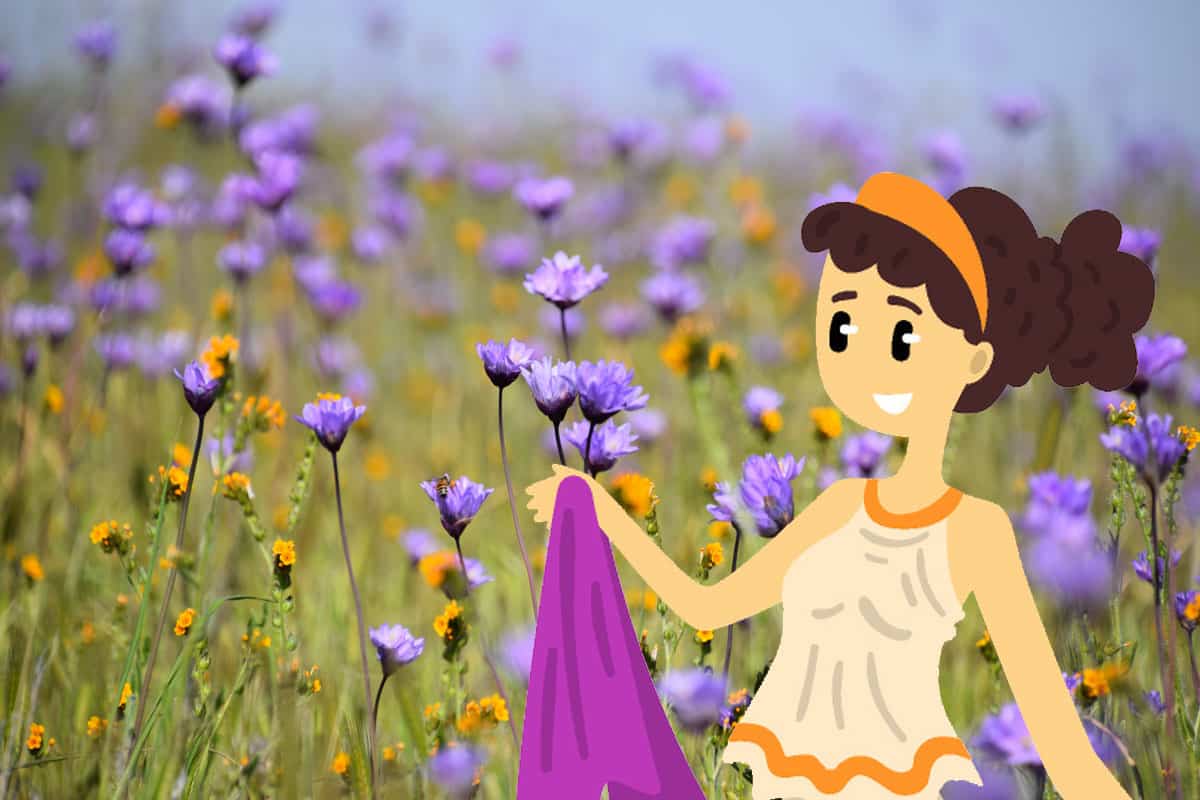
8. Hera – Goddess of the Sky
Hera was known to be the daughter of Cronus and Rhea. She was the sister and wife to Zeus, and queen of the gods and the sky. She was also the patroness of marriage and watched over the welfare of women and children. She was well known for her jealous rages and ability to hold grudges.
The biggest grudge Hera ever held was over Zeus’ affair with the mortal woman, Alcmene. Alcmene was known as the Lady of the Light Footsteps, and Hera hated her. Zeus and Alcmene ended up having a son, Heracles, Zeus showed his mortal son a lot of favor. This angered Hera beyond words. She tortured Heracles from the moment he was born and continued to do so all throughout his mortal life.
Hera also had it out for another one of Zeus’ love interests, a mortal named Io. Zeus had to turn Io into a white cow to protect her from Hera’s wrath. This disguise failed to work. Hera told Zeus to give her the white cow Io and he did. Here then went on to tie Io up and had the 100 eyed Argus dog, guard her. The god Hermes ended up rescuing Io by putting Argus to sleep with music.
9. Uranus – Primordial God of the Sky
Uranus was known to be the son and husband of Gaia. He had no father, but was created solely from Gaia who came from Chaos. Together Gaia and Uranus created the first race of Greek gods, the Titans, as well as the Giants and the Cyclopes.
The great sky god was hated by both his wife Gaia and his sons the titans. Together with 4 brothers, Cronus overpowered Uranus and ended up castrating him. Uranus’ severed genitals landed in the sea and became the goddess, Aphrodite. The blood from the castration ended up transforming into the Furies and nymphs.
Before his head sunk into the ocean, he told Cronus that a prophecy would come to pass and Cronus would be overthrown by his own son. This is a prophecy that later did come true, as Cronus was overthrown and killed by his son, Zeus. Zeus then ended up becoming king of the gods and the sky.
10. Nyx – Goddess of the Night
Nyx was said to have emerged from Chaos. She was known as the goddess of night. She was said to live beyond the setting sun and was often found riding in a chariot drawn by two horses. She was seen as both a good and bad figure. Good, because she brought rest at the end of the day, but bad, because she was also responsible for bringing death and darkness.
Nyx was responsible for bringing many lives into existence. She was mother to many deities or forces that affected mankind. Some of her children were Thanatos (Death), Eris (Strife), and Nemesis (Vengeance). She was also responsible for bringing the three Fates, Sleep, Death, Strife and Pain into the world, as well as a large number of nymphs.
It is also possible that Nyx produced Eros, the god of love. If this was the case, then Eros was the light to her darkness. He brought things together and order began to appear.
11. Iris – Goddess of Rainbows
Iris was said to be the daughter of the god, Thaumas and the nymph, Electra. She was known as the goddess of rainbows and the messenger between gods and humans. She may also have been Hera’s handmaiden and personal messenger. Iris was thought to be responsible for replenishing the rain-clouds with water, so to allow more rainbows to form in the sky.
In one myth, Zeus had an affair with the goddess Aphrodite. Together the two had the god Eros. Zeus wanted to hide his affair, so he decided the best way to do that was to say Iris and the West Wind were the parents of Eros. Hera didn’t believe this lie for one second, but she was very angry with Iris for letting Zeus tell the lie.
Iris, who was known to be a very calming presence, took the scolding without defending herself. She began to weep and then smiled at Hera. Her tears and smile created a rainbow that was so beautiful, Hera couldn’t go on scolding her any longer. This was a key moment in the realm of the gods, because Hera never stopped scolding and always held grudges.
Final Thoughts
The sky was an important realm in Greek mythology and it was a key locations for many of the important events. The many deities that are associated with this realm pop up throughout the Greek myths. The range of characters and the imagination necessary to create such stories is impressive even until this day. Thanks!
Contents
- Sky Gods and Goddesses in Greek Mythology
- 1. Zeus – God of the Sky
- 2. Aeolus – God of the Winds
- 3. The Anemoi/The Winds – Boreas, Eurus, Notus, Zephyrus
- 4. Atlas – Bearer of the Heavens
- 5. Eos – Goddess of the Dawn
- 6. Helios – God of the Sun
- 7. Selene – Goddess of the Moon
- 8. Hera – Goddess of the Sky
- 9. Uranus – Primordial God of the Sky
- 10. Nyx – Goddess of the Night
- 11. Iris – Goddess of Rainbows
- Final Thoughts

